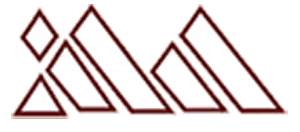Rumah Tradisi Temiar Dan Hubungannya Yang Simbiosis Dengan Persekitaran
Abstract
Abstrak
Makalah ini akan membincangkan sejauhmana adaptasi dan persekitaran alam memberi pengaruh terhadap ciri sosiobudaya dan corak penempatan sesuatu masyarakat. Perbincangan adalah berdasarkan kepada kajian etnografi yang telah dijalankan di beberapa tapak penempatan masyarakat Orang Asli suku Temiar di Hulu Kelantan, Hulu Kinta dan Sungai Siput, Perak (Rajah 1). Masyarakat Temiar di kawasan kajian beradaptasi dengan persekitaran hutan dan tanah tinggi dengan ketinggian maksima sehingga 4306 meter dari paras laut. Corak persekitaran sebegini menawarkan tanah yang subur dan kaya dengan kepelbagaian flora dan fauna selain berkait rapat dengan kepercayaan nenek moyang mereka. Hasil kajian ini mendapati bahawa corak adaptasi di persekitaran hutan hujan tropika memiliki hubungan yang simbiotik dengan corak rumah tradisional mereka. Selain itu akan turut dibincangkan fungsi ruang dalam rekabentuk rumah mereka. Kajian juga mendapati bahawa masyarakat ini sedang berdepan dengan cabaran untuk melestarikan rumah tradisional apabila berlakunya perubahan dalam persekitaran. Pada masa ini, secara perlahan-lahan telah berlaku perubahan dalam corak penempatan, namun sebahagian mereka terutama di pendalaman masih mengekalkan rumah tradisional tersebut.
Kata kunci: Rumah tradisi, Temiar, simbiosis, persekitaran.
Abstract
This paper discusses how adaptation and the environment have an impact on the socio-cultural and placement patterns of a society. The discussion was based on the ethnographic studies conducted in several settlements of the Orang Asli community of Temiar in Hulu Kelantan, Hulu Kinta and Sungai Siput, Perak (Figure 1). The Temiar community in the area of study is a community that adapts to a forest and highlands environment with a maximum height of up to 4306 meters above sea level. This environmental pattern offers fertile soil and is rich in diversity of flora and fauna in addition to the beliefs of ancestors. The results of this study found that adaptation patterns in forest environments had a symbiotic relationship with their traditional home style. Besides that, it will be discussed that the function of space in the design of the house. Studies have also found that the community is facing a challenge to preserve traditional houses when there is a change in the environment. At present slowly there has been a change in the pattern of placement, but some of them, especially in the interior, still maintain the traditional house.
Keywords: Traditional house, Temiar, symbiosis, environment
Full Text:
PDFReferences
Benjamin, G. 1966. Temiar Sosial Groupings. Federation Museums Journal. XI(New Series): 1-25.
Foo, Y.P. 2005. Tumbuhan, Bungaan dan Buahan Hutan. Petaling Jaya: Edu Quest Publisher.
Hamid Mohd Isa. 2007. Material Culture Transformation and Its Impact On Cultural Ecological Change ; Case Study of The Lanoh Upper Perak. Dlm. Archaeological Heritage of Malaysia, disunting oleh Mokhtar Saidin & Stephen Chia. Pulau Pinang: Universiti Sains Malaysia.
Noone H.D.1936. Culture, Breed and Language Among Malayan Aborigines. Journal of The Federeted Malay States Museums 19: 1-85.
Tan, C.B. 1975. The Yao People: An Introduction. In Farmers in The Hills Upland Peoples of North Thailand, edited by Anthony R.Walker. Data Papers in Social Anthropology, School of Comparative Social Science,Universiti Sains Malaysia.
Walker, A.R. 1975. North Thailand: Hills and Valley, Hillmen and Lowlanders In Farmers in The Hills Upland Peoples of North Thailand, edited by Anthony R.Walker. Data Papers in Social Anthropology, School of Comparative Social Science,Universiti Sains Malaysia.
http://ms.wikipedia.org/wiki/Pokok_Meranti_Kepong. [14 hb.Mei 2010]
http://tariansewangpayalebar.blogspot.com/.[14 hb. Mei 2010]
www.jheoa.gov.my.[14 hb. Mei 2010]
Refbacks
- There are currently no refbacks.

IKATAN AHLI ARKEOLOGI MALAYSIA
d/a Institut Alam dan Tamadun Melayu
Universiti Kebangsaan Malaysia
43600 UKM Bangi, Selangor Darul Ehsan, Malaysia
Tel: +60 3 8921 5280
